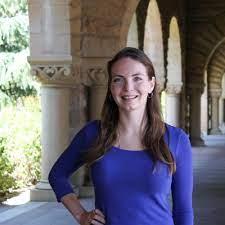Samantha Piekos, PhD
K. Carole Ellison Fellow in Bioinformatics
Institute for Systems Biology
Faculty Candidate for HDSI-BENG Joint Hire
Professional webpage here: https://isbscience.org/bio/samantha-piekos-phd/
Seminar Information

The interplay of biology, environment, and lifestyle direct the development and progression of complex diseases and other health outcomes. Therefore, integration of longitudinal multimodal data is needed to understand the mechanisms underpinning major molecular transitions. Previously during my doctoral work at Stanford, I integrated multiomics data to elucidate the epigenetic mechanism of human surface ectoderm differentiation. I also built a pipeline to investigate the role of polymorphism, particularly non-coding genetic variants, in complex diseases. To address the common pain point of data silos limiting the interpretation of multimodal data integration, I formed a collaboration with Google Data Commons to build a free, open-source biomedical knowledge graph with a common schema and API. Currently it is composed of approximately 130 million nodes and 1.7 trillion triples (node-edge-node) from 22 publicly available biomedical datasets. Knowledge graphs are a key tool for hypothesis generation, data interpretation, and dimensionality reduction required for systems medicine research. Upon starting my postdoctoral work at the Institute for Systems Biology, I identified pregnancy as an excellent model system for prototyping precision medicine approaches. I used electronic healthcare records (EHR) from Providence St. Joseph Healthcare to investigate the impact of COVID-19 maternal infection and vaccination on maternal-fetal outcomes. In addition, I integrated multiomics placental data to investigate molecular network changes (interomics and intraomics) in common obstetric disorders. In a follow-up study (enrollment complete) we have longitudinal deep-phenotyping data of 435 people throughout pregnancy 80 of which have pregnancy complications. This includes multiomics, survey, EHR, and air quality data collected from first prenatal visit through delivery. My lab will use this data to define major molecular transition states throughout pregnancy. I will also investigate the disease mechanisms of common obstetric disorders including identifying for an individual the earliest possible point of deviation from a healthy trajectory. This interdisciplinary approach will identify potential drug targets, biomarker panels, and individualized clinical interventions.
Samantha completed her PhD in Stem Cell Biology and Regenerative Medicine with a PhD minor in Biomedical Informatics at Stanford University under the advisement of Dr. Anthony Oro. Using a multiomics approach, Samantha demonstrated how transcription factors direct keratinocyte differentiation by changing the epigenetic landscape, including chromatin looping, thereby effecting the cell transcriptional program. Samantha has also been collaborating with Google since June 2019 to build Biomedical Data Commons, a knowledge graph that integrates biomedical data from a wide array of sources into a single searchable database thereby increasing data accessibility. Upon completion of her PhD in 2020, began her postdoctoral fellowship at the Institute for Systems Biology under the advisement of Drs. Lee Hood and Nathan Price. Using electronic healthcare records (EHR), she has provided insight into the impact of maternal COVID-19 and vaccination on maternal-fetal outcomes. In addition to her EHR research, Samantha is using multidimensional omics placental data to understand the molecular mechanism of common obstetric disorders. Upon transitioning to Assistant Professor, she intends to perform multimodal data integration of longitudinal deep-phenotyping data to evaluate changes in molecular networks in complex diseases.
